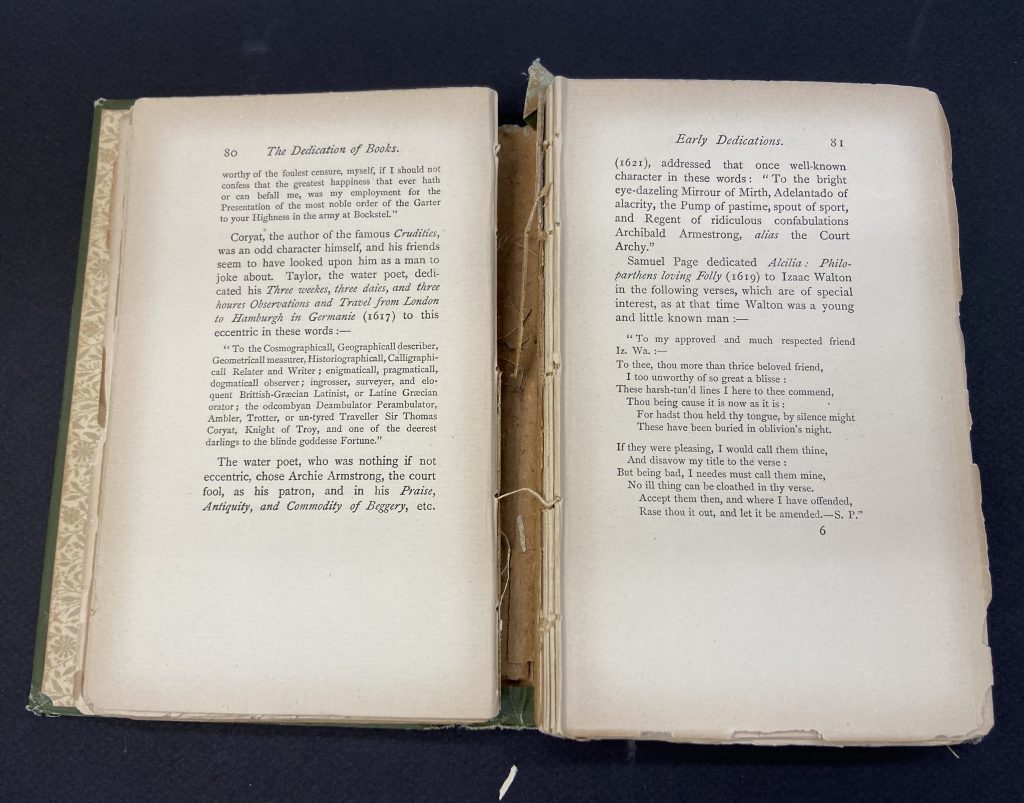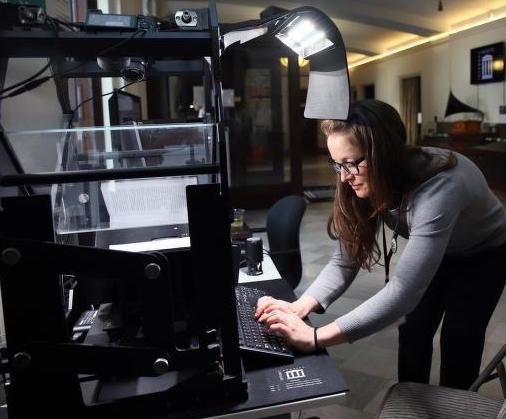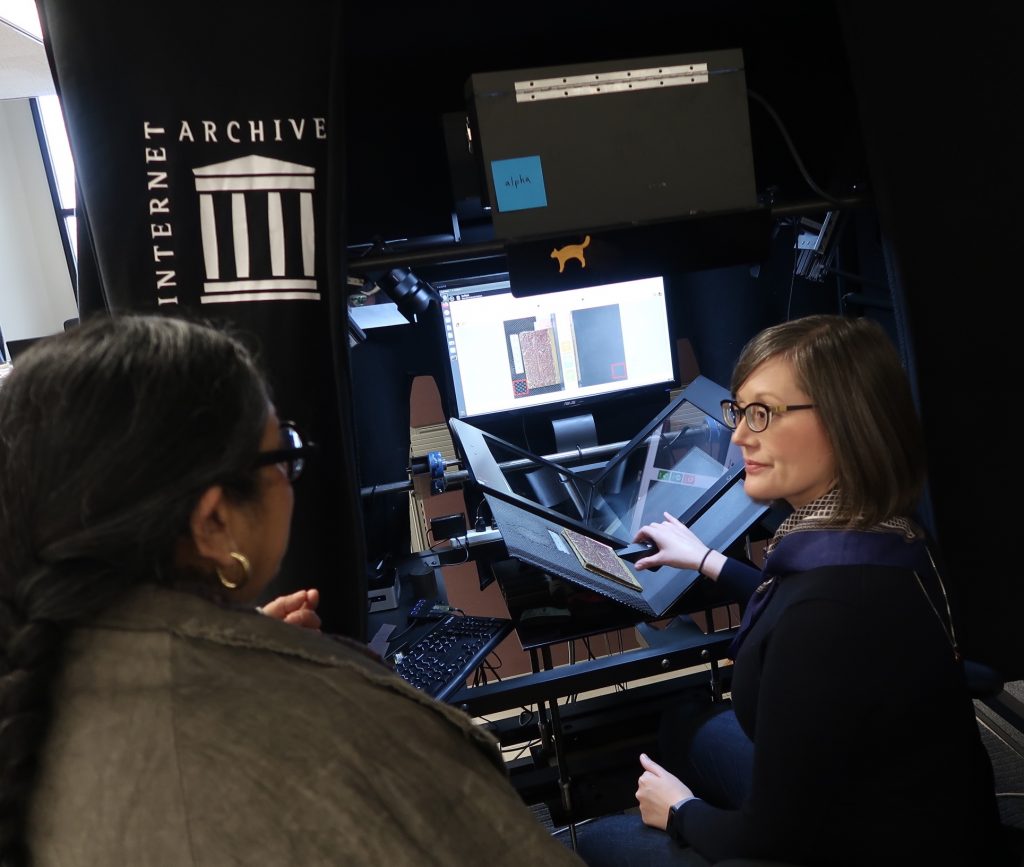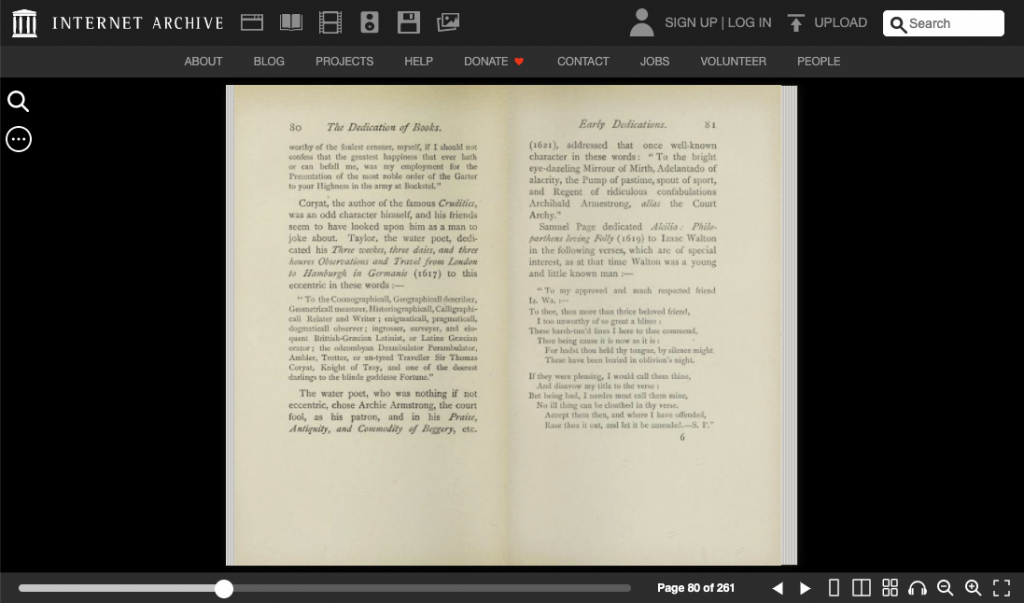
Sometimes they arrive tied up in string because their binding is broken. Others are in envelopes to protect the brittle pages from further damage.
Aging books are sent from libraries to the Internet Archive for preservation. Thanks to the careful work of the nearly 70 people who scan at digitization centers in the United States, United Kingdom and Canada, the books get a second life with a new audience.
Scanners sometimes call these “Last Chance Books” and they take pride in restoring them. As they turn the pages one at time to be photographed and digitized, they develop a daily cadence—but it must be adjusted with fragile materials.
“We do our best with the flaking or cracking pages,” said Andrea Mills, digitization program manager for the Internet Archive stationed in Toronto, Canada. “You have to be really cautious that the flake doesn’t fall off and cover a word. It’s almost like a puzzle.”

Some books that land at the Internet Archive digitization centers date back to the 1700s. They are fiction and nonfiction, journals and pamphlets covering a range of topics. And, it can be surprising to learn what reviving the material means to patrons.
“We chuckled when we digitized a book on sea captains. We thought – who will care? And then a year later, it had hundreds of views,” said Elizabeth MacLeod, senior manager of satellite digitization services who manages remote operations out of Wilmington, North Carolina.
Digitization helps preserve materials that are no longer in circulation at their holding library because they are falling apart. It also gives new exposure to books that are out of print that may otherwise be forgotten.
Both Mills and MacLeod began working for the Internet Archive more than 10 years ago as book scanners – also known as Scribe operators. Mills has an arts degree in jewelry design and teaching; MacLeod studied biology. They were both drawn to the mission of the Internet Archive and share a passion of connecting people with resources.
Over the years, Mills and MacLeod have worked closely with librarians and archivists around the world to digitize their collections, learning more with each project. They now manage digitization and support sites with training and best practices, many embedded in libraries, in 10 countries and upwards of 30 locations. Digitizing is a somewhat solitary task and some people “get in the zone” while scanning; others are very chatty or listen to music, Mills said.

Many employees have worked together for nearly a decade and there is a friendly, collaborative vibe at the centers. “We have all sorts of people—artists, printers and photographers. They are people who are meticulous and love books,” Mills said. A recent viral video shared on the Internet Archive’s Twitter account features Scribe operator Eliza Zhang, who has worked at the Archive for more than ten years. Book conservators from larger institutional partners also offer additional training for Internet Archive operators on best practices for handling their unique collections.
MacLeod says the scanners are all committed to providing a service to readers and it’s satisfying to help people with disabilities connect with books, “It’s energizing to be part of an organization that is thinking outside the box,” she said. “I want people to be able to have more access to whatever they are trying to find.”
Added Mills: “I’m an information junky. I love the search and the hunt and the finding the answer. The power of the internet and digitization is that you can find that answer faster. It just sort of opens up the possibilities of what you can do.”


Do you guys have someone working in/for south america?
Fernando, we have lots of options available. Please reach out to info@archive.org to be connected with our digitization managers.